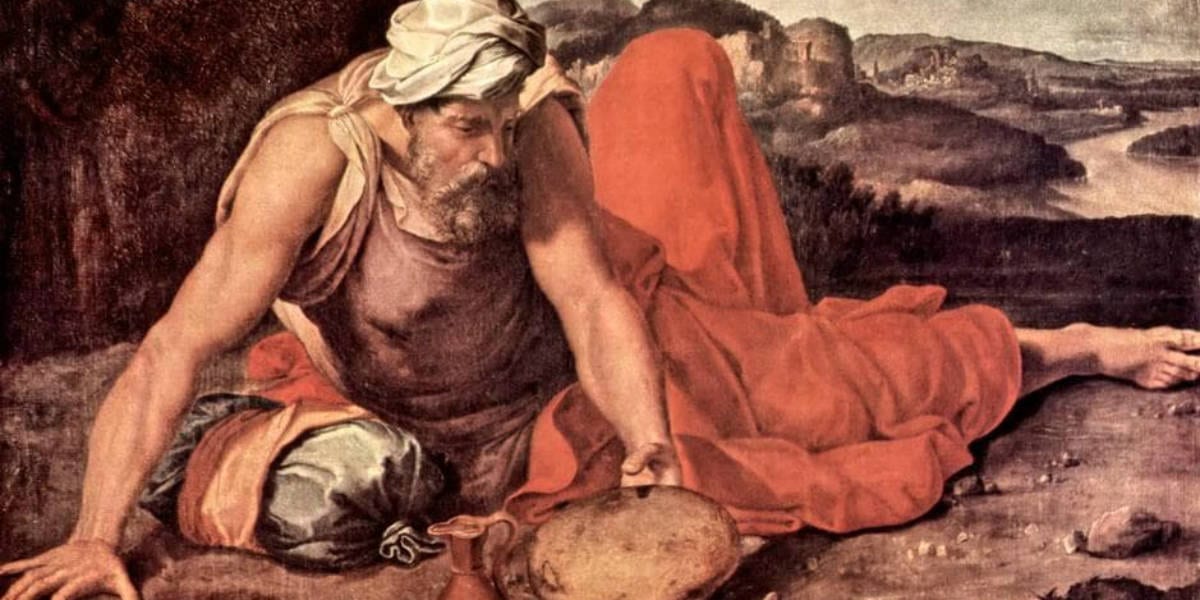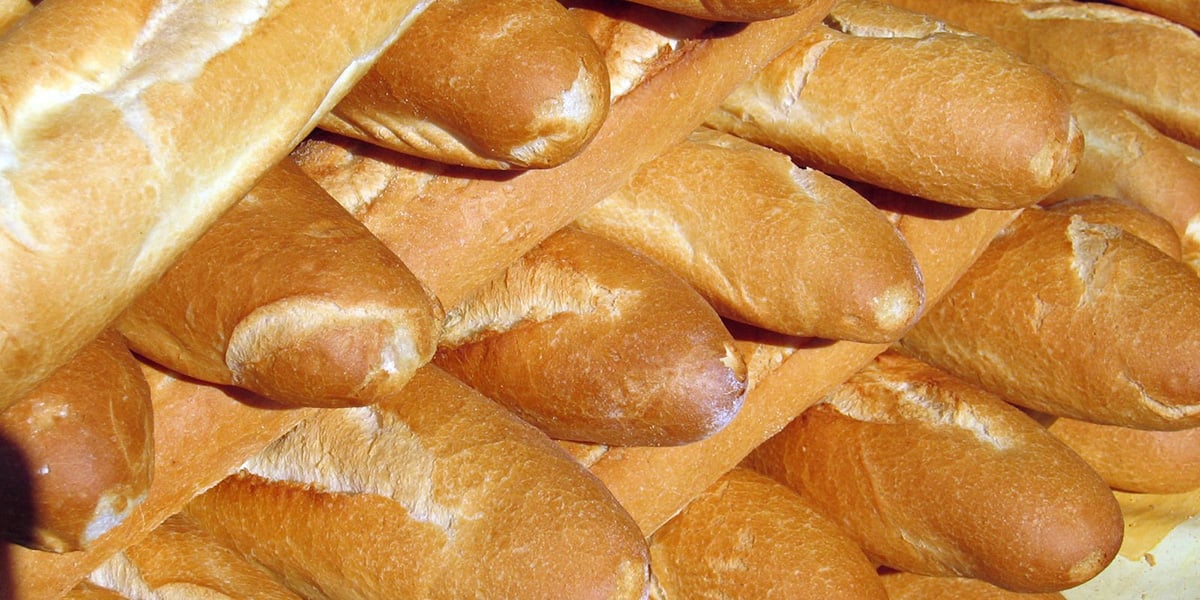Regina Caeli – Queen of Heaven, Rejoice!
The Regina Caeli, Latin for “Queen of Heaven,” is a hymn and prayer ...

This post is also available in: Spanish, Italian
Somehow, we can all relate to the discouragement and exhaustion of Elijah. So we need to learn from the solution proposed by God to revitalize and energize him for the long journey he needed to make and the important work he was going to do. The bread God provided is a figure of a more wondrous bread that is available to us, the Eucharist. For the 19th Sunday in Ordinary Time, B.
To LISTEN to this post read by Dr. Italy, click on the play arrow on the left, directly below this paragraph.
It’s hard enough to do the right thing. But when you get blame for it instead of praise, it really takes the wind out of your sails, even if you happen to be a prophet.
This is background we need in order to understand an intriguing story preserved for us in the first book of Kings. Elijah had just brought an end to a two year famine by doing away with the idolatrous prophets of Ba’al. So what thanks does he get from Queen Jezebel? She demands his head on a platter. Within seconds he goes from hero to fugitive. After running for his life, he finally drops exhausted in the desert under the only shade he can find. Feeling sorry for himself, he prays for death. God decides on a different solution to his problem. An angel appears with bread and water and tells him to take nourishment. He has a long journey ahead of him and there is no time for moping.
This is no ordinary meal, however. Have you ever heard of a single snack of bread and water giving someone sufficient strength to trudge 40 days through barren desert only to arrive at an equally barren mountain?
This is indeed a puzzling incident that is more than a miraculous desert refueling of a discouraged prophet. The Holy Spirit intends it to point forward to an even more remarkable food and drink that God will make available through his son, Jesus.
Are we speaking of the loaves and fishes that Jesus multiplies to feed thousands in the wilderness? Even that is too little. For this miraculous lakeside meal, mentioned by all four gospels, satisfied only for a short time, and then the people were hungry again. Jesus points this out in John 6, and he also reminds the people that the manna their forefathers ate in the desert had similar limitations.

Above image of loaves of bread by Pat Herman on FreeImages. Public domain.
So the multiplication of the loaves and fishes, like the meal Elijah received under the broom tree, merely points forward to something even greater, to food that truly satisfies and leads to eternal life. The fulfillment of all these foreshadowings is Jesus’ own flesh and blood, to be eaten sacramentally under the forms of bread and wine, in the Eucharist. This meal will be offered not just to a select few, but to all those sealed with the Holy Spirit (Ephesians 4:30) through baptism, making them prophets, kings, and priests of the Lord. They, like the prophet Elijah, will ultimately walk with God in glory, but before that will have a long, arduous journey to make that will require extraordinary stamina.
Of course, we are counted among this number. In Ephesians 4, Paul tells us why we will need superhuman strength to complete this pilgrimage. We are to rid ourselves of bitterness, passion, anger, harsh words, slander, and malice of every kind.
Have you ever tried to eliminate all such things in from your life? Have you found it easy to be as kind, compassionate, and forgiving as God, to be imitators of Christ’s way of love and self-sacrifice? Then you know why God has made nourishment available to us that is truly superhuman, indeed divine, so that we are capable of loving in a way normally impossible for mere mortals.
In God’s wonderful plan of creation, blood was designed to purify our system of all impurities and bring life to every cell of our bodies. Christ gives us his own blood to drink to flush out the toxins of selfishness and revitalize us with his divine generosity and unlimited patience. When we receive this sacrament in faith, we have God’s own love coursing through our veins, passing through our weak hearts, strengthening them for the journey of love that can lead us through some pretty bleak landscapes at times.
God cared enough for Elijah to have an angel bring him a special meal. He did one better for us. He sent his Son who both brought the meal and is Himself the meal.
For more on the Eucharist, see the first in Dr. Italy’s series Understanding the Mass: Part I.
See also the extensive EUCHARIST LIBRARY on the Crossroads Initiative website.
This post focuses on Elijah’s bread as a type or foreshadowing of the Eucharist, the food that purifies, transforms and energizes us for the journey. It is a reflection upon the readings for the 19th Sunday in Ordinary Time, liturgical cycle B (I Kings 19:4-8; Psalm 34; Ephesians 4:30-5:2; John 6:41-51).
Banner/featured image The Prophet Elijah by Daniele da Volterra. Public domain.
Sherry
Posted at 17:13h, 30 JanuaryThanks, Marcellino. Just what I needed! Sherry Brownrigg